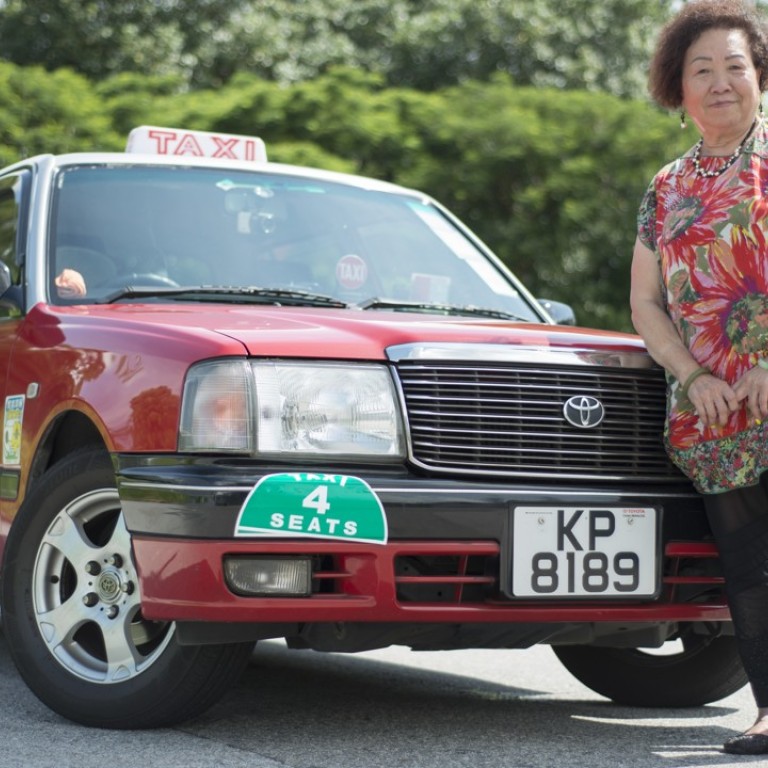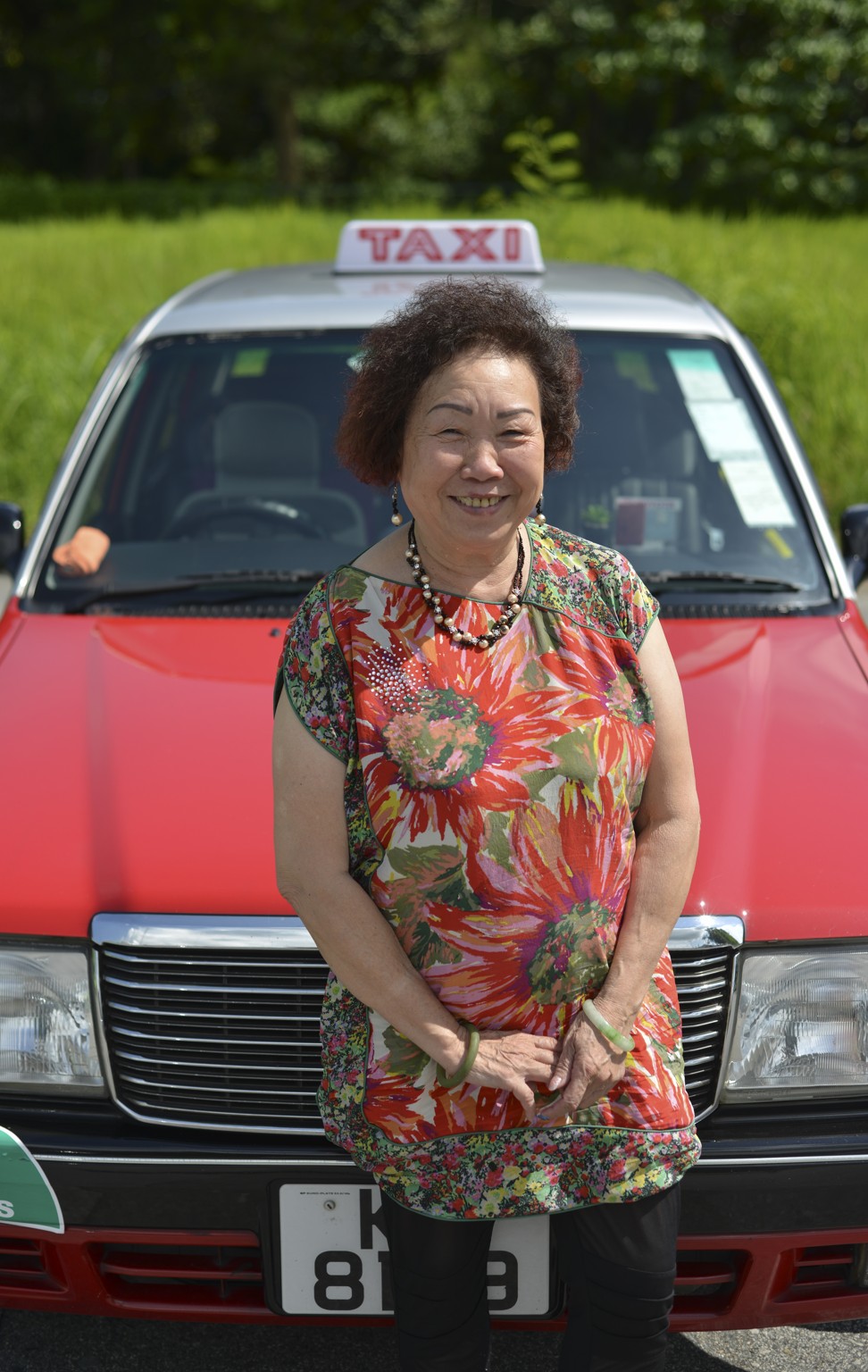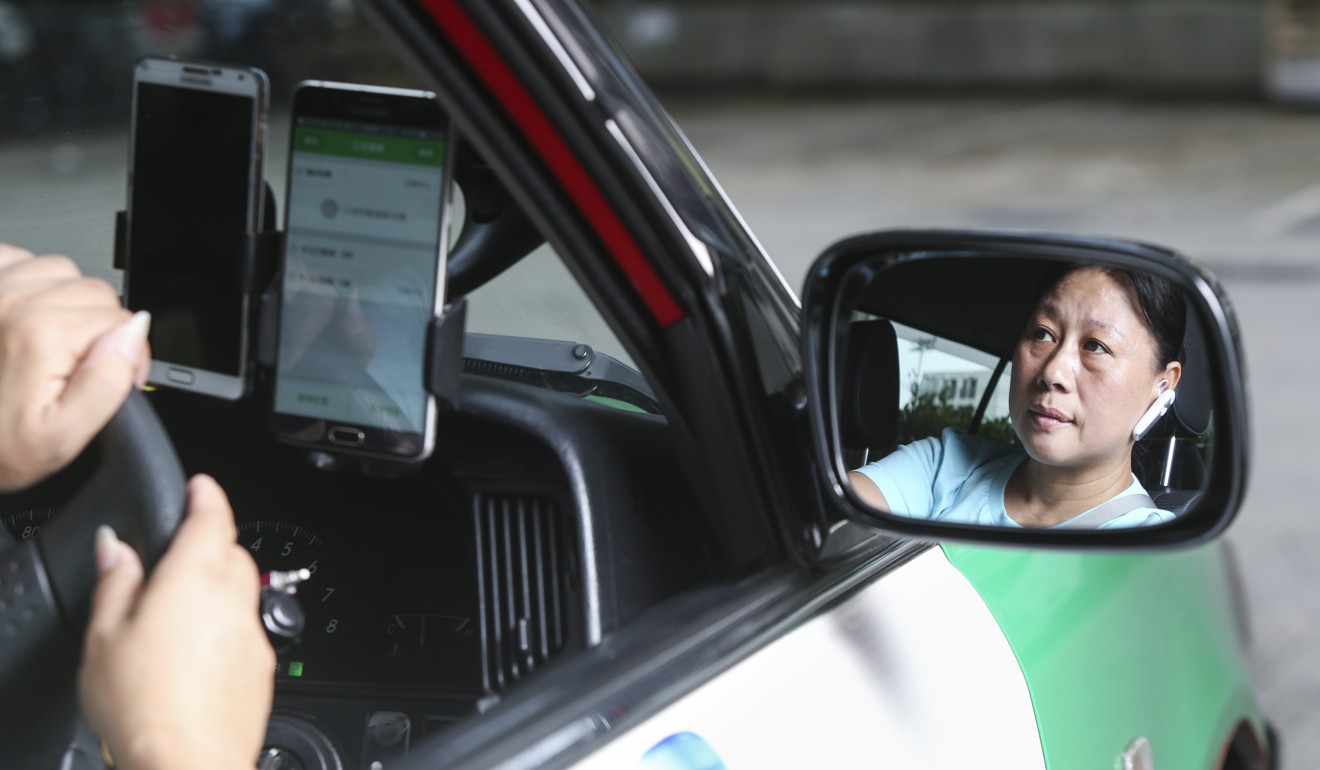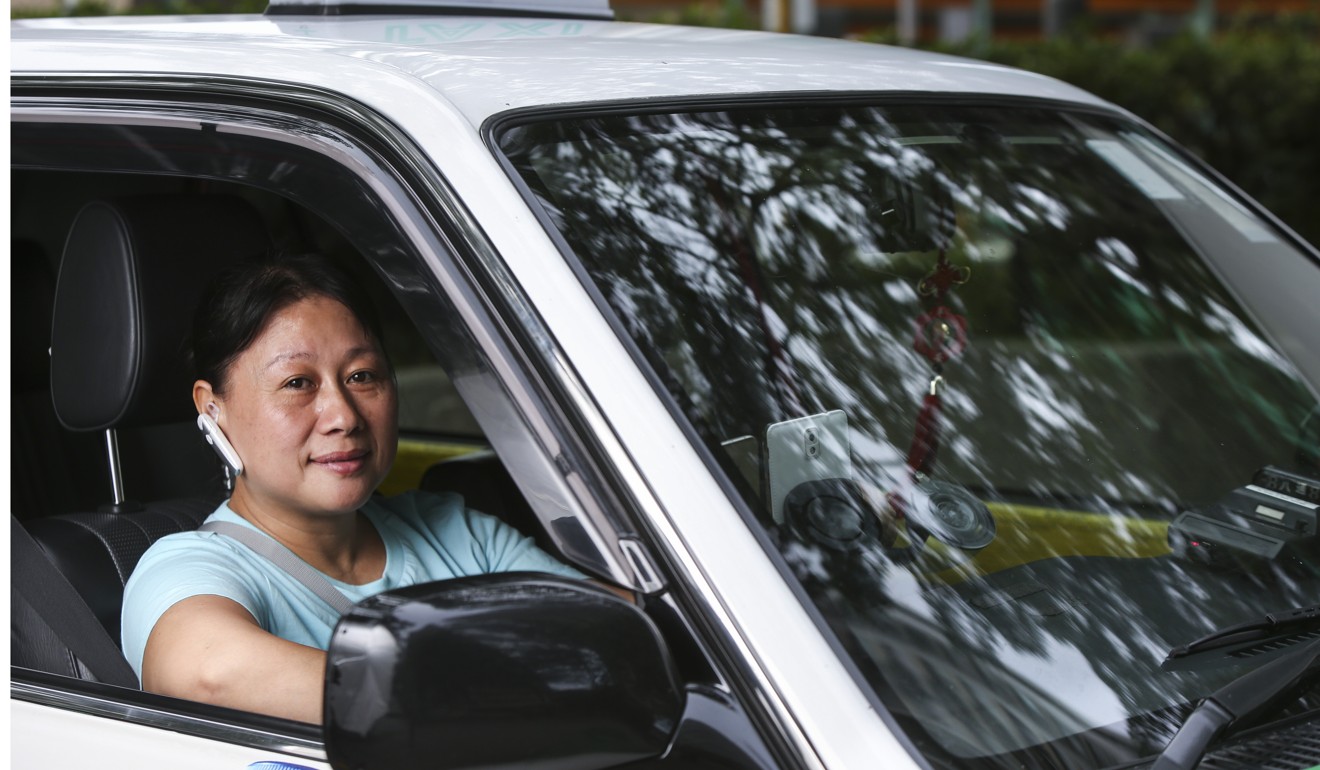
Hong Kong women taxi drivers on why they love the job and how they deal with sexist colleagues and passengers
Rudeness, puncture problems and dealing with drunks – nothing deters these women, who talk about why they enjoy what they do
Women drivers are often the butt of chauvinistic jokes, so it’s not always an easy ride for Hong Kong’s female taxi drivers. Working in a typically male profession, they risk being picked on by cabbies of the opposite sex and shunned by sexist passengers.
That’s been the experience of Anna Tam Choi-har, 72. Tam has been behind the wheel of a Kowloon red taxi for 45 years – longer than many men – and remembers when the flag fall was merely HK$1.
Her male peers can be rude, she says, recalling an incident that happened just this month, when a male driver queue jumped to pick up a passenger. “He saw that I was woman, so he thought I could be easily bullied,” she says.
Passengers can also be unkind, Tam says. “When they see that you’re a woman, they might not get in your cab. They take other taxis [with male drivers]. One time, a passenger got into my cab and immediately asked if I could drive faster. I hadn’t even set off yet. They [passengers] think that because you’re a woman you’ll drive slowly. There are even woman passengers who look down on women taxi drivers.”
There are 40,000 taxi drivers in Hong Kong – most of them sharing cabs in shifts – according to To Sun-tong, director of the Motor Transport Workers General Union. The Transport Department says 6,100 taxi licences are in the hands of women. However, the exact number of women cabbies can’t be confirmed because not everyone who holds a licence drives a taxi – many rent them to others.

Greater strength would also have been handy when an inebriated drunk Westerner got into her cab and immediately lost consciousness last Lunar New Year on Lockhart Road. When she couldn’t wake him, she called the police. He began to come round when officers and an ambulance arrived.
“It was very troublesome. He was so big that I couldn’t move him,” Tam says. “And I can’t speak English.”
Tam says that when she became a cabbie, in the early 1970s, the industry began to flourish.
“At that time, Blue Taxicab [the largest taxi firm in Kowloon] still existed,” she says. “There were many taxi companies at the time.”
A mother of five, Tam chose the occupation because her husband was also a cabbie and it enabled her to help feed the family. She worked the night shift because she had to look after her children during the day.
I get to know what people in society are thinking, instead of being stuck at home and being a cook and housewife. I can learn more
“It was tough at that time. I only had a few hours’ sleep a day,” she says. “I finished my shift at around 5am to 6am. After my children left home for school in the morning, I would sleep for a while and then get up and do the household chores.”
Driving alone at night could be dangerous for a woman driver, Tam says, but she was young and unafraid. “It was very busy because there were fewer public transport options at night back then.” She recalls long queues of young dancers that would form when the traditional Chinese nightclubs in Tsim Sha Tsui closed early in the morning.
Despite her age, Tam says she still enjoys working and has no plans to retire any time soon. “If you retire you get bored and become ill, so why should I stop working? You get to meet many people and learn a lot. Passengers tell you all sorts of things.”

Ma took a subsidised course available for workers who want to change jobs, and passed the written taxi driver’s exam on her third attempt.
“I don’t have any work pressure,” says Ma, who drives a green taxi in the New Territories, mainly around Tuen Mun, two or three days a week. “I get to know what people in society are thinking, instead of being stuck at home and being a cook and housewife. I can learn more.”
Ma says driving a taxi is completely different from being behind the wheel of a private car. “You need to think about the safety of your passengers, so you’re always careful.”
Driving has raised Ma’s self-confidence she says, because she often gets complimented by passengers on her driving skills.
Her favourite thing about being a taxi driver is the freedom. “I feel very free when I’m driving, because you are in control of your own car; you can go wherever you want [when there’s no passenger],” she says.
Ma loves being able to manage her own time, because as a cabbie she is self-employed.
“If something happens suddenly in your family, you can stop your taxi and head back home very quickly,” she says. “But if you work for a company, you need to inform your employer and take leave. Sometimes you cannot take leave when you need to, because there may not be another person in the company who can do your work for you.”
Ma says she put a great deal of effort into studying for the exam. “I had to memorise the map of Hong Kong’s roads and all their names. It took me a long time,” she recalls. She travelled by public transport to places she was not familiar with to figure out the route.
If there’s any inconvenience being a woman driver, Ma says, it’s finding a toilet, especially when she’s in a remote location. “At Shenzhen Bay immigration checkpoint, you need to get out of the taxi and walk a long way until you reach the public toilet,” she says, adding that it’s much more convenient for male drivers. They can “just hide behind the wall”.

“I stopped by the side of the road and looked for around to see if there was anyone who might be able to help me. But there was no one.” Ma recalls. Fortunately, she had learned how to change a wheel while taking her taxi-driver’s course, so ended up doing it herself.
“I had passengers in the car so I had to change it very quickly.” she says.
Ma thinks that in general women taxi drivers are more humble than their male counterparts. When she first got in the driver’s seat, she always apologised to passengers in advance for being a beginner who might not know they way to their destination.
“Male taxi drivers often get grumpy with passengers,” she says. “As a result, some male drivers are under the impression that passengers give us [female drivers] more in tips, because we are female.”
Hong Kong Island red cab driver Pun Siu-po, 60, has been in the business for 13 years. During the 2003 outbreak of severe acute respiratory syndrome (Sars), Pun was one of the many who lost their jobs in the ensuing economic downturn.
“There was no other work I could do,” she says. “I owned a taxi licence so I decided to become a taxi driver.”
Pun works for about 20 days each month – on the night shift from 5pm to 3am – and earns roughly HK$10,000.
“Driving at night is more comfortable,” Pun says. “I don’t have the problem of being stuck in traffic jams. Plus I don’t need to put up with the heat. It’s very hot during the daytime in summer and it gets very stuffy inside a taxi.”
Some passengers are surprised when they see a woman behind the wheel of a taxi, she says. “They say it’s very rare to ride in a taxi driven by a female driver.”
In Pun’s opinion, passengers are generally very friendly with women taxi drivers – unlike her male peers, who can be rude.“I’ve encountered male taxi drivers who rush in front of my taxi and compete for passengers,” Pun says. “This is very common. It happens every day.”
